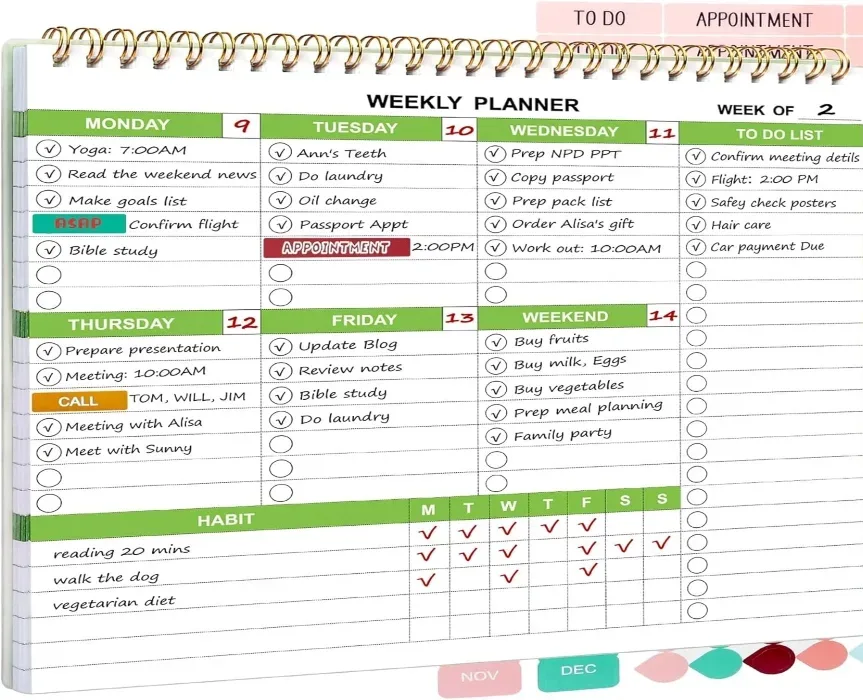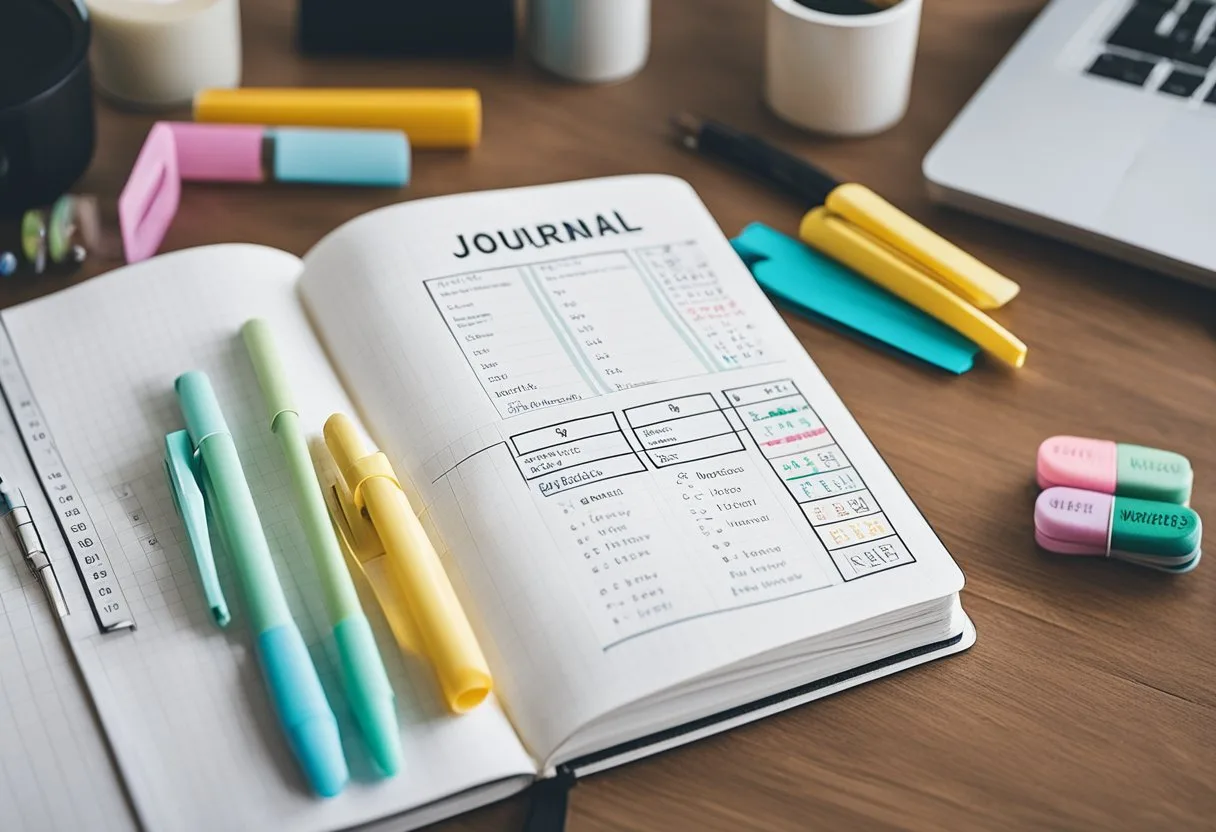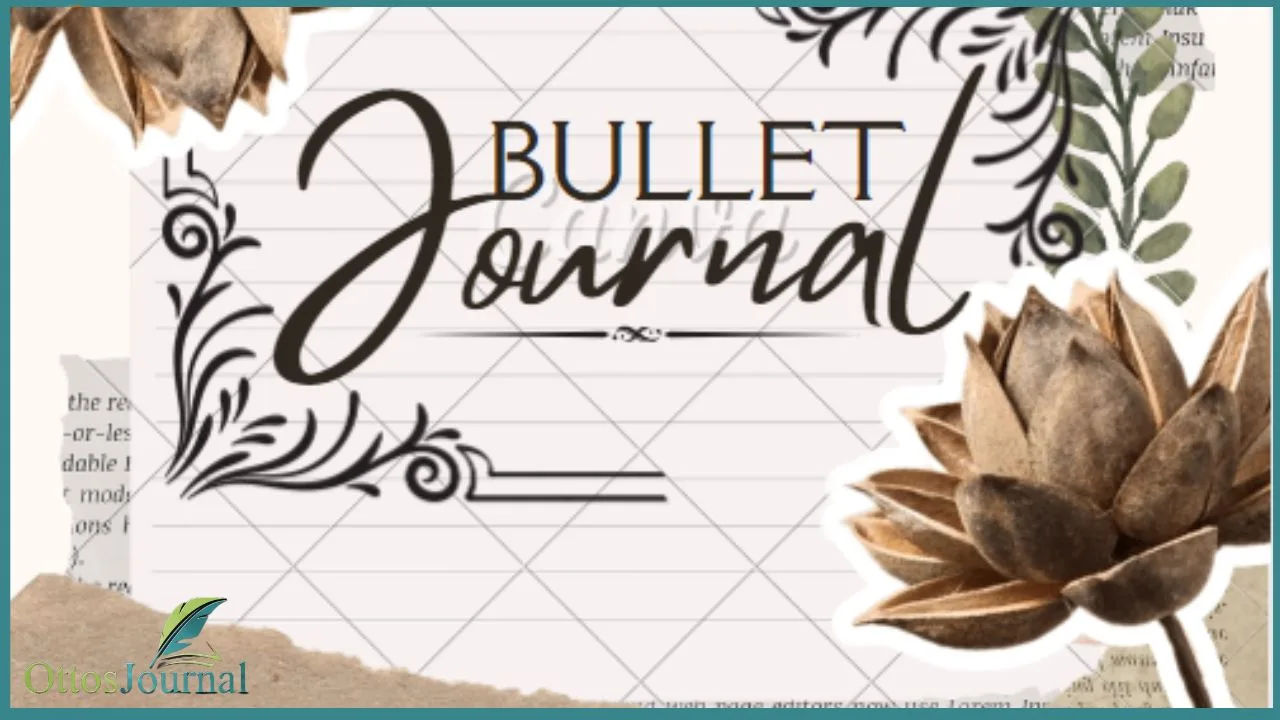Bullet journaling has become a popular tool for personal growth and mental health, as it allows individuals to record their thoughts, emotions, and experiences in a structured way. By dedicating time to self-reflection and self-care, individuals can gain a deeper understanding of their mental and emotional state, leading to improved well-being and a happier life.
The beauty of bullet journaling lies in its flexibility and adaptability to individual needs. It can be used to track habits, set goals, plan meals, and much more. However, when it comes to mental health and self-care, bullet journaling offers a unique opportunity to prioritize personal growth and well-being. By incorporating self-care activities and mindfulness practices into their bullet journal, individuals can create a sacred space for self-discovery and personal development.
Whether you are new to bullet journaling or a seasoned pro, incorporating mental health and self-care into your journal can have a profound impact on your overall well-being. In the following sections, we will explore various ways to use your bullet journal to prioritize personal growth and self-care.
Foundations of Personal Growth and Mental Health
Understanding Mental Health
Mental health is an essential aspect of overall well-being that involves emotional, psychological, and social well-being. It affects how individuals think, feel, and act, and it also determines how they handle stress, relate to others, and make decisions. The state of one’s mental health is influenced by various factors, including genetics, environment, lifestyle, and life experiences.
In recent years, there has been an increasing awareness of the importance of mental health, and the need to address mental health issues has become a global concern. The World Health Organization (WHO) defines mental health as “a state of well-being in which every individual realizes his or her own potential, can cope with the normal stresses of life, can work productively and fruitfully, and is able to make a contribution to her or his community.”
The Role of Self-Care in Personal Development
Self-care is a crucial aspect of personal growth and development, and it involves taking deliberate actions to improve one’s physical, emotional, and psychological well-being. Self-care practices can help individuals manage stress, improve their mental health, and enhance their overall quality of life.
Self-care practices can take many forms, including exercise, meditation, journaling, spending time with loved ones, and engaging in hobbies. It is essential to identify the self-care practices that work best for each individual and incorporate them into one’s daily routine.
Personal growth and mental health are closely linked, and self-care is a critical component of both. By taking care of oneself, individuals can improve their mental health, enhance their well-being, and achieve their full potential.
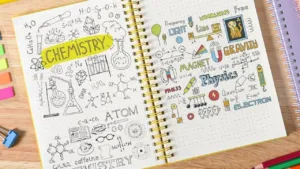
Bullet Journaling for Mental Clarity
Bullet journaling is an effective tool for mental clarity and personal growth. It is a journal system that allows individuals to record their thoughts, emotions, and experiences in a structured and organized manner. By regularly journaling, individuals can develop a deeper understanding of their mental and emotional state, leading to a better and happier life and improved well-being.
Getting Started with a Bullet Journal
To get started with a bullet journal, individuals need a notebook, pen or fineliner, and some stickers or doodles to make it visually appealing. The notebook should have dot grid pages to make it easier to create layouts and designs. The pen or fineliner should be of good quality to avoid smudging or bleeding.
The first step is to create an index, which is a table of contents that will help individuals keep track of their entries. The second step is to create a key, which is a system of symbols that will be used to categorize entries. For example, a dot can be used to signify a task, a dash can be used to signify a note, and a circle can be used to signify an event.
Bullet Journal Layouts and Key Components
There are various layouts that individuals can use to create their bullet journal. The most common ones are the future log, monthly log, and weekly log. The future log is used to record events that will happen in the future, while the monthly log is used to record events that will happen in the current month. The weekly log is used to record events that will happen in the current week.
In addition to the layouts, there are key components that individuals can use to enhance their bullet journal. These include images, doodles, and stickers. Images can be used to add visual interest to the journal, while doodles can be used to add a personal touch. Stickers can be used to highlight important events or tasks.
Bullet journaling is an effective tool for mental clarity and personal growth. By creating a structured and organized journal system, individuals can develop a deeper understanding of their mental and emotional state, leading to a better and happier life and improved well-being.
Self-Care Strategies and Activities
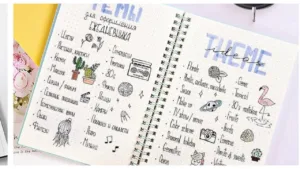
Self-Care Ideas and Routines
Self-care routines are essential in promoting personal growth and mental health. Engaging in self-care activities helps individuals to maintain a healthy balance between their personal and professional lives. Here are some self-care ideas and routines that individuals can incorporate into their daily lives:
- Exercise: Engaging in physical activities such as jogging, running, swimming, or yoga can help individuals to reduce stress and anxiety levels. Exercise also helps to improve overall physical health and well-being.
- Me Time: Taking time out to relax and unwind is crucial in promoting mental health. Individuals can engage in activities such as reading, listening to music, or taking a warm bath to help them relax.
- Diet and Meal Plan: Eating a balanced diet is essential in promoting overall health and well-being. Individuals can create a meal plan that includes healthy foods such as fruits, vegetables, and lean proteins to help them maintain a healthy diet.
- Gratitude and Compassion: Practicing gratitude and compassion can help individuals to develop a positive mindset. Individuals can keep a gratitude journal or engage in activities that promote compassion, such as volunteering.
- Mindfulness and Self-Compassion: Mindfulness and self-compassion practices can help individuals to reduce stress and anxiety levels. Individuals can engage in activities such as meditation, deep breathing, or yoga to help them become more mindful.
Incorporating Self-Care into Daily Life
Incorporating self-care into daily life can be challenging, but it is essential in promoting personal growth and mental health. Here are some tips on how individuals can incorporate self-care into their daily lives:
- Schedule Self-Care Activities: Individuals can schedule self-care activities into their daily routines to ensure that they prioritize their mental and physical health.
- Take Breaks: Taking breaks throughout the day can help individuals to reduce stress levels and increase productivity. Individuals can take short breaks to engage in self-care activities such as deep breathing or stretching.
- Set Boundaries: Setting boundaries is crucial in promoting mental health. Individuals should learn to say no to activities that do not align with their self-care goals.
- Practice Self-Compassion: Individuals should learn to be kind and compassionate to themselves. Practicing self-compassion can help individuals to reduce stress levels and improve their overall well-being.
Engaging in self-care activities is essential in promoting personal growth and mental health. Individuals can incorporate self-care activities into their daily routines to ensure that they prioritize their mental and physical health.
Tracking Progress and Well-being

Keeping track of progress and well-being is an essential aspect of personal growth and mental health. A bullet journal can be a valuable tool for tracking habits, moods, and goals.
Mood and Habit Trackers
Mood and habit trackers are a great way to monitor progress and identify patterns. By tracking moods and habits, individuals can gain insight into their emotional and physical well-being. In a bullet journal, mood trackers can be created using a simple chart or graph.
The tracker can be color-coded to represent different moods, and symbols can be used to indicate the cause of the mood. Habit trackers can also be created using a chart or graph, and symbols can be used to indicate whether the habit was completed or not.
Reflecting on Personal Growth
Reflection is an important part of personal growth and can help individuals identify areas for improvement. In a bullet journal, reflection can be done through regular journaling or by creating a reflection page. Reflection pages can include questions about personal growth, such as “What did I learn this week?” or “What could I have done differently?” Gratitude logs can also be used to reflect on positive experiences and cultivate a positive mindset.
Tracking progress and reflecting on personal growth can help individuals stay motivated and achieve their goals. By incorporating mood and habit trackers and reflection pages into a bullet journal, individuals can gain insight into their emotional and physical well-being and make positive changes in their lives.
Overcoming Challenges and Maintaining Resilience
Personal growth and mental health are essential for a fulfilling life. However, overcoming challenges and maintaining resilience is crucial for achieving these goals. By addressing anxiety and stress, building confidence, and adopting a positive mindset, individuals can improve their emotional needs and adjust to life’s challenges.
Addressing Anxiety and Stress
Anxiety and stress are common triggers for depression and other mental health issues. To address these challenges, individuals can use a bullet journal to track their triggers and identify patterns. By recording their thoughts and feelings, they can gain a better understanding of their emotional needs and develop coping strategies.
Individuals can practice self-care by engaging in activities that promote relaxation and reduce stress. These activities may include exercise, meditation, deep breathing, or spending time in nature. By prioritizing self-care, individuals can improve their mental health and reduce the impact of stress and anxiety.
Building Confidence and Positive Mindset
Building confidence and adopting a positive mindset is essential for personal growth and resilience. Individuals can use their bullet journal to set goals and track their progress. By focusing on their strengths and accomplishments, individuals can build their confidence and develop a positive mindset.
Moreover, individuals can challenge negative self-talk and beliefs by reframing their thoughts. This may involve replacing negative thoughts with positive affirmations or reframing challenges as opportunities for growth. By adopting a growth mindset, individuals can improve their resilience and overcome obstacles.
Overcoming challenges and maintaining resilience is essential for personal growth and mental health. By addressing anxiety and stress, building confidence, and adopting a positive mindset, individuals can improve their emotional needs and adjust to life’s challenges. With the help of a bullet journal, individuals can track their progress and develop coping strategies to improve their mental health and well-being.

Personal growth mental health bullet journal self care
- Mood Tracker: Create a color-coded mood tracker to record your daily emotional state. This visual representation can help identify patterns and triggers in your mood.
- Affirmations Page: Write down positive affirmations and read them daily to boost your self-esteem and mental resilience.
- Gratitude Log: Keep a daily log of things you’re grateful for to cultivate a positive mindset and appreciate the good in your life.
- Self-Care Routine: Plan and track daily self-care activities, ensuring you dedicate time to your physical and emotional well-being.
- Sleep Tracker: Monitor your sleep patterns to understand the quality and quantity of your rest and its effect on your mental health.
- Stress Triggers: Note down situations that trigger stress and reflect on coping mechanisms that could alleviate your response.
- Anxiety Journal: When feeling anxious, write down your thoughts and fears to process them more effectively and find solutions.
- Personal Goals: Set and track personal growth goals, breaking them down into actionable steps to foster progress and motivation.
- Therapy Insights: After therapy sessions, jot down insights, homework, or breakthroughs to reinforce your learning and growth.
- Emotional Release: Dedicate pages for free writing or drawing to express and process complex emotions.
- Mindfulness Exercises: List and practice mindfulness exercises, such as deep breathing or meditation, to stay present and reduce anxiety.
- Habit Tracker: Monitor habits that impact your mental health, like exercise, meditation, or screen time, to encourage positive routines.
- Inspiration Board: Create a collage of quotes, images, and art that inspire and uplift you during challenging times.
- Social Connection Log: Track your interactions with friends and family to ensure you’re maintaining supportive relationships.
- Self-Reflection Prompts: Write down prompts that encourage deep thinking about your values, aspirations, and emotions.
- Personal Strengths: List your strengths and achievements to remind yourself of your capabilities and boost confidence.
- Boundary Setting: Reflect on and define your personal boundaries to improve relationships and self-respect.
- Coping Strategies: Develop a list of effective coping strategies for when you’re feeling overwhelmed or down.
- Joy List: Make a list of activities that bring you joy and aim to incorporate them into your routine.
- Personal Mantras: Create personal mantras that resonate with your growth journey and use them as daily reminders.
- Skill Development: Track new skills you’re learning to enhance self-efficacy and personal development.
- Relaxation Techniques: Document different relaxation techniques and track their effectiveness on your stress levels.
- Progress Reflection: Regularly reflect on your personal growth progress, acknowledging improvements and areas to work on.
- Self-Compassion Exercises: Practice and record self-compassion exercises to foster a kinder internal dialogue.
- Victory Log: Celebrate small wins and successes to maintain a sense of accomplishment and progress in your mental health journey.
Frequently Asked Questions
What essential elements should be included in a self-care bullet journal?
A self-care bullet journal should include elements that help track and prioritize self-care activities. This can include sections for daily and weekly self-care routines, goal setting, and habit tracking. It’s also important to include sections for gratitude, affirmations, and reflection to help maintain a positive mindset.
How can bullet journaling contribute to improving mental health and managing anxiety?
Bullet journaling can be a useful tool for managing anxiety and improving mental health by providing a structured outlet for thoughts and emotions. The act of writing down thoughts and feelings can help individuals process and make sense of them. Bullet journaling can help individuals track self-care activities and prioritize their mental health.
What are some creative self-care ideas to incorporate into a bullet journal?
Some creative self-care ideas to incorporate into a bullet journal include creating a vision board, tracking mood and energy levels, practicing meditation and mindfulness, and scheduling time for hobbies and activities that bring joy.
Can you provide guidance on organizing a mental health bullet journal effectively?
To organize a mental health bullet journal effectively, individuals should start by creating an index and key to easily navigate the journal. They should also include sections for daily and weekly self-care routines, goal setting, habit tracking, gratitude, affirmations, and reflection. It’s important to personalize the journal to fit individual needs and preferences.
Where can I find free printables to add to my mental health bullet journal?
There are many websites and online communities that offer free printables for bullet journaling. Pinterest and Etsy are great resources for finding printable templates and stickers to use in a bullet journal.
What are the benefits of using a bullet journal as a tool for personal growth?
Using a bullet journal as a tool for personal growth can help individuals set and achieve goals, track progress, and reflect on their personal journey. It can also provide a creative outlet for self-expression and help individuals prioritize their mental health and self-care.

